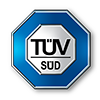Recitals 91 - 101 (IVDR)
(91) In order to ensure uniform conditions for the implementation of this Regulation, implementing powers should be conferred on the Commission. Those powers should be exercised in accordance with Regulation (EU) No 182/2011 of the European Parliament and of the Council 18.
(92) The advisory procedure should be used for implementing acts that set out the form and presentation of the data elements of manufacturers' summaries of safety and performance, and that establish the model for certificates of free sale, given that such implementing acts are of a procedural nature and do not directly have an impact on health and safety at Union level.
(93) The Commission should adopt immediately applicable implementing acts where, in duly justified cases relating to the extension to the territory of the Union of a national derogation from the applicable conformity assessment procedures, imperative grounds of urgency so require.
(94) In order to enable it to designate issuing entities and EU reference laboratories, implementing powers should be conferred on the Commission.
(95) To allow economic operators, especially SMEs, notified bodies, Member States and the Commission to adapt to the changes introduced by this Regulation and to ensure its proper application, it is appropriate to provide for a sufficient transitional period for that adaptation and for the organisational arrangements that are to be made. However, certain parts of the Regulation that directly affect Member States and the Commission should be implemented as soon as possible. It is also particularly important that, by the date of application of this Regulation, a sufficient number of notified bodies be designated in accordance with the new requirements so as to avoid any shortage of devices on the market. Nonetheless, it is necessary that any designation of a notified body in accordance with the requirements of this Regulation prior to the date of its application be without prejudice to the validity of the designation of those notified bodies under Directive 98/79/EC and to their capacity to continue issuing valid certificates under that Directive until the date of application of this Regulation.
(96) In order to ensure a smooth transition to the new rules for registration of devices and of certificates, the obligation to submit the relevant information to the electronic systems set up at Union level pursuant to this Regulation should, in the event that the corresponding IT systems are developed according to plan, only become fully effective from 18 months after the date of application of this Regulation. During this transitional period, certain provisions of Directive 98/79/EC should remain in force. However, in order to avoid multiple registrations, economic operators and notified bodies who register in the relevant electronic systems set up at Union level pursuant to this Regulation should be considered to be in compliance with the registration requirements adopted by the Member States pursuant to those provisions.
(97) In order to provide for a smooth introduction of the UDI system, the moment of application of the obligation to place the UDI carrier on the label of the device should vary from one to five years after the date of application of this Regulation depending upon the class of the device concerned.
(98) Directive 98/79/EC should be repealed to ensure that only one set of rules applies to the placing of in vitro diagnostic medical devices on the market and the related aspects covered by this Regulation. Manufacturers' obligations as regards the making available of documentation regarding devices they placed on the market and manufacturers' and Member States' obligations as regards vigilance activities for devices placed on the market pursuant to that Directive should however continue to apply. While it should be left to Member States to decide how to organise vigilance activities, it is desirable for them to have the possibility of reporting adverse incidents related to devices placed on the market pursuant to that Directive using the same tools as those for reporting on devices placed on the market pursuant to this Regulation. However, Decision 2010/227/EU adopted in implementation of that Directive and Council Directives 90/385/EEC 19 and 93/42/EEC 20 should also be repealed as from the date when Eudamed becomes fully functional.
(99) The requirements of this Regulation should be applicable to all devices placed on the market or put into service from the date of application of this Regulation. However, in order to provide for a smooth transition it should be possible, for a limited period of time from that date, for devices to be placed on the market or put into service by virtue of a valid certificate issued pursuant to Directive 98/79/EC.
(100) The European Data Protection Supervisor has given an opinion 21 pursuant to Article 28(2) of Regulation (EC) No 45/2001.
(101) Since the objectives of this Regulation, namely to ensure the smooth functioning of the internal market as regards medical devices and to ensure high standards of quality and safety for in vitro diagnostic medical devices, thus ensuring a high level of protection of health and safety of patients, users and other persons, cannot be sufficiently achieved by the Member States but can rather, by reason of its scale and effects, be better achieved at Union level, the Union may adopt measures, in accordance with the principle of subsidiarity as set out in Article 5 of the Treaty on European Union. In accordance with the principle of proportionality, as set out in that Article, this Regulation does not go beyond what is necessary in order to achieve those objectives,
HAVE ADOPTED THIS REGULATION:
